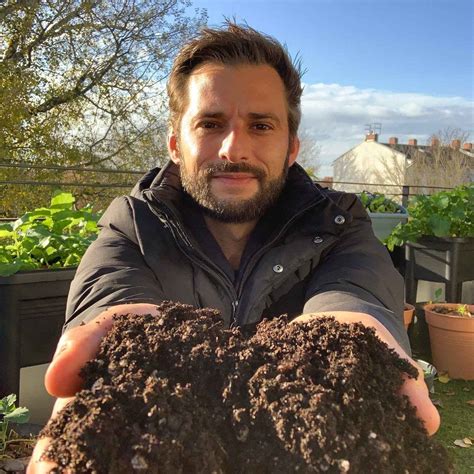Choosing the Best Soil for Balcony Gardens: A Comprehensive Guide
Balcony gardening is a wonderful way to bring greenery into your urban life. However, choosing the right soil for your balcony garden is crucial for the success of your plants. In this article, we’ll explore soil types, container gardening techniques, and planting tips to ensure your garden thrives. Let’s take a deep dive into soil selection, tailored specifically for balcony gardens, while keeping in mind the unique challenges and benefits of urban gardening.
Key Concepts in Balcony Gardening Soil
Before we dig into the details, it’s essential to understand the key concepts of soil health, soil types, and how they relate to plant growth in balcony gardens. These factors are the foundation for successful container gardening, influencing nutrient availability, water retention, and drainage.
Types of Soil: Which Is Best for Your Balcony Garden?
Understanding soil types is the first step in selecting the perfect medium for your balcony plants. The most common types are:
- Clay Soil: Dense and heavy, clay holds water well but drains poorly. It’s not ideal for containers unless mixed with other materials.
- Sandy Soil: Drains quickly and is easy to work with, but it may require amendments to retain nutrients.
- Loamy Soil: Considered the best for most plants, loamy soil is well-balanced in terms of nutrients, water retention, and drainage.
- Peat-based Potting Mix: Excellent for container gardening, as it is lightweight and retains moisture without becoming compacted.
For balcony gardens, potting mix or loamy soil is often the best choice, especially when combined with compost or perlite to improve structure and nutrient content.
Historical Context: Evolution of Balcony Gardening
The history of balcony gardening can be traced back to ancient civilizations, where urban dwellers made the most of limited space. As cities grew, the need for urban gardening solutions became more pronounced, leading to innovations in container gardening and soil management. Today, modern potting mixes and soil amendments are specifically designed to support the needs of plants grown in confined spaces, offering better soil health and plant growth than ever before.
Current State Analysis: Modern Soil Solutions for Urban Gardening
Balcony gardening has gained immense popularity in recent years due to the rise of urban living. However, modern challenges include air pollution, limited sunlight, and varying seasonal needs. The choice of soil plays a critical role in overcoming these issues. Modern potting mixes are typically enriched with nutrients and designed to maintain proper drainage while ensuring the soil doesn’t become too compact, a common issue in container gardening.
Components of a Good Balcony Garden Soil
To maximize your gardening success, your soil should have the following properties:
- Good drainage: Excess water should flow out easily to prevent root rot.
- Nutrient retention: Soil should hold essential nutrients for healthy plant growth.
- Lightweight: Balcony gardening requires a lighter mix to prevent overloading structures.
- Water retention: The soil should retain enough moisture to keep plants hydrated without becoming waterlogged.
Practical Applications: Choosing the Right Soil for Specific Plants
Not all plants thrive in the same type of soil. When selecting the best soil for your balcony garden, consider the plants you want to grow. Here are some common balcony plants and recommended soil mixes:
| Plant Type | Recommended Soil Mix |
|---|---|
| Herbs (basil, mint, parsley) | Light potting mix with added perlite for drainage |
| Vegetables (tomatoes, peppers) | Loamy soil enriched with compost |
| Succulents (cacti, aloe) | Sandy, well-draining soil with low organic matter |
| Flowers (petunias, geraniums) | Peat-based potting mix for moisture retention |
Case Studies: Successful Balcony Gardening with Proper Soil
To illustrate the impact of selecting the right soil, let’s look at a few case studies:
- Case Study 1: Urban Vegetable Garden – A balcony vegetable garden in New York City used loamy soil mixed with compost to successfully grow tomatoes and peppers, despite limited sunlight. The added compost improved nutrient levels and soil structure.
- Case Study 2: Succulent Paradise – In Los Angeles, a collection of succulents thrived in a custom sandy mix. The excellent drainage prevented root rot, which is a common issue for succulents in containers.
- Case Study 3: Flowering Balcony – A flower enthusiast in Chicago created a vibrant balcony garden using peat-based potting soil, which helped the flowers retain moisture during dry summer months.
Stakeholder Analysis: Who Benefits from the Right Soil Choice?
Choosing the right soil affects several key stakeholders:
- Homeowners: Successful plant growth enhances the beauty and value of their property.
- Urban Planners: Promoting urban gardening contributes to city sustainability and green initiatives.
- Garden Supply Retailers: Higher demand for quality soils and potting mixes supports business growth.
Implementation Guidelines: Step-by-Step Soil Selection
Here’s a simple guide to selecting and preparing soil for your balcony garden:
- Identify the plants you want to grow and research their specific soil needs.
- Select a potting mix designed for container gardening. Look for blends with good drainage and nutrient retention.
- Consider adding organic compost or fertilizers to improve soil health and provide essential nutrients.
- Check the weight of the soil to ensure it won’t overload your balcony structure.
- Regularly monitor your plants for signs of soil issues, such as yellowing leaves (nutrient deficiency) or root rot (poor drainage).
Ethical Considerations in Urban Gardening
Ethical gardening involves making sustainable choices, such as using organic soil mixes free from harmful chemicals. It’s also important to consider the environmental impact of sourcing soil, especially in urban areas where landfills are often overburdened with non-biodegradable materials. Using compost made from kitchen scraps or locally sourced organic material can help reduce waste and contribute to a more sustainable gardening practice.
Limitations and Future Research
While balcony gardening offers numerous benefits, it also has limitations. The primary concern is limited space and soil volume, which can restrict root growth. Further research could explore more innovative soil technologies, such as hydroponic systems or soil-less gardening techniques that maximize plant growth in urban settings. Additionally, studies on the long-term sustainability of balcony gardens and their impact on urban ecosystems would be beneficial.
Expert Commentary
As gardening experts continue to develop better soil mixes and urban gardening solutions, balcony gardening will become even more accessible to people living in cities. The key takeaway for successful balcony gardening is to match your soil to your plant’s specific needs, while also considering the unique challenges of urban gardening. By doing so, you can create a thriving green space, even in the heart of the city.


